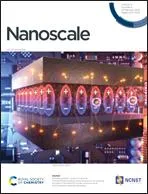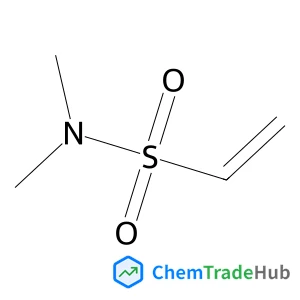Solution processed flexible and bending durable heterojunction colloidal quantum dot solar cell
Literature Information
Xiaoliang Zhang, Jindan Zhang, Jianhua Liu, Erik M. J. Johansson
A flexible hybrid heterojunction PbS colloidal quantum dot solar cell, where the photoactive layers are deposited using a solution processed fabrication approach under ambient condition and at room temperature is presented. The bending stability of the obtained solar cell is evaluated. The results show that the solar cell exhibits high bending stability and even under the bent state the cell also maintains a high performance, which shows the potential of the quantum dot solar cell toward a lightweight, bendable power source with many possible applications.
Related Literature
IF 6.367
A hollow neuronal carbon skeleton with ultrahigh pyridinic N content as a self-supporting potassium-ion battery anodeIF 6.367
Illuminating endosomal escape of polymorphic lipid nanoparticles that boost mRNA deliveryIF 6.843
From Douglas fir to renewable H2-enriched syngas via ex situ catalytic pyrolysis over metal nanoparticles–nanocellulose derived carbon catalystsIF 6.367
Contents listIF 6.843
Transition metal chemistry in synthetically viable alkaline earth complexes M(Cp)3− (M = Ca, Sr, Ba)IF 6.222
Electrocatalytic cleavage of lignin model dimers using ruthenium supported on activated carbon clothIF 6.367
Highly efficient and durable III–V semiconductor-catalyst photocathodes via a transparent protection layerIF 6.367
MnO/C cubo-polyhedrons derived from α-MnO2@ZIF-8 as anode materials for high-performance lithium-ion batteriesIF 6.367
Insights into the mechanism of photosynthetic H2 evolution catalyzed by a heptacoordinate cobalt complexIF 6.367
Source Journal
Nanoscale

Nanoscale is a high-impact international journal, publishing high-quality research across nanoscience and nanotechnology. Nanoscale publishes a full mix of research articles on experimental and theoretical work, including reviews, communications, and full papers. Highly interdisciplinary, Nanoscale appeals to scientists, researchers and professionals interested in nanoscience and nanotechnology, quantum materials and quantum technology, including the areas of physics, chemistry, biology, medicine, materials, energy/environment, information technology, detection science, healthcare and drug discovery, and electronics. For publication in Nanoscale, papers must report high-quality reproducible new work that will be of significant general interest to the journal's wide international readership. Nanoscale is a collaborative venture between the Royal Society of Chemistry Publishing and a leading nanoscience research centre, the National Center for Nanoscience and Technology (NCNST) in Beijing, China. image block The journal publishes weekly issues, complementing and building on the nano content already published across the Royal Society of Chemistry Publishing journal portfolio. Since its launch in late 2009, Nanoscale has established itself as a platform for high-quality, cross-community research that bridges the various disciplines involved with nanoscience and nanotechnology, publishing important research from leading international research groups.
Recommended Compounds
Recommended Suppliers
 Anhui Yiqu Tonggong Biotechnology Co., Ltd.
Anhui Yiqu Tonggong Biotechnology Co., Ltd. Scheidt-Ventilatoren GmbH
Scheidt-Ventilatoren GmbH Zhucheng Taisheng Chemical Co., Ltd.
Zhucheng Taisheng Chemical Co., Ltd. Anhui Nanfang Chemical Pump Co., Ltd.
Anhui Nanfang Chemical Pump Co., Ltd. SL Kunststofftechnik GmbH
SL Kunststofftechnik GmbH Jüke Systemtechnik GmbH
Jüke Systemtechnik GmbH Addivant Germany GmbH
Addivant Germany GmbH International Business Systems (IBS) GmbH
International Business Systems (IBS) GmbH Allweiler Geschäftsbereich Exzenterschneckenpumpen
Allweiler Geschäftsbereich Exzenterschneckenpumpen Liaoyang Petrochemical One Billion Industrial Company Sales Department
Liaoyang Petrochemical One Billion Industrial Company Sales Department










![57423-71-9 - (1R,2R,4R,6S,11R,12S,15R,18S,19R,20S,21S,23R,26R)-15-Hydroxy-11,18,21-trimethyl-5,17,24,28,29-pentaoxanonacyclo[17.9.1.1~1,20~.0~2,12~.0~4,6~.0~6,11~.0~15,19~.0~18,23~.0~21,26~]triacont-8-ene-10,16,25
,30-tetrone 57423-71-9 - (1R,2R,4R,6S,11R,12S,15R,18S,19R,20S,21S,23R,26R)-15-Hydroxy-11,18,21-trimethyl-5,17,24,28,29-pentaoxanonacyclo[17.9.1.1~1,20~.0~2,12~.0~4,6~.0~6,11~.0~15,19~.0~18,23~.0~21,26~]triacont-8-ene-10,16,25
,30-tetrone](/structs/574/57423-71-9-78dc.webp)



